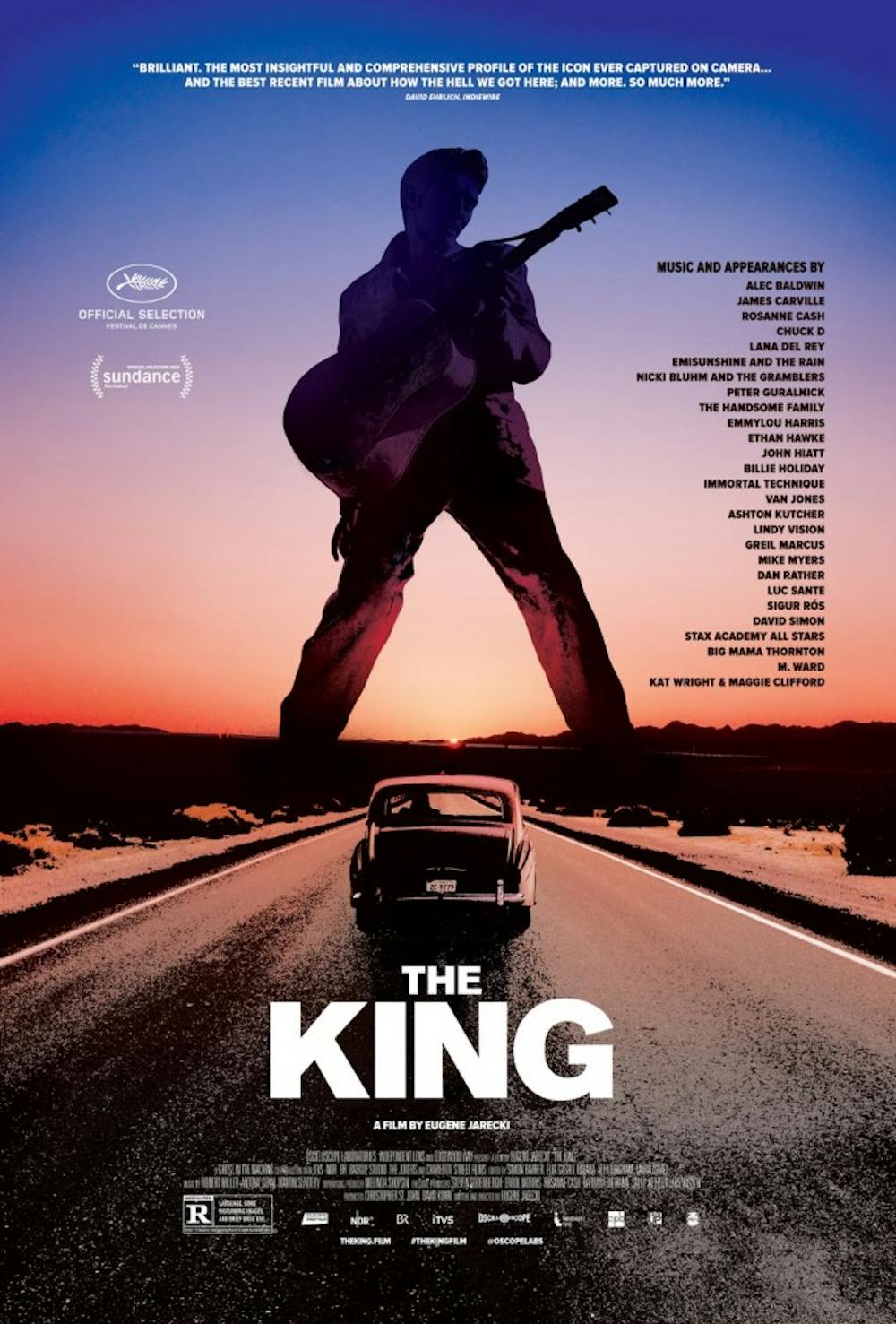From: Silver Screen
Elvis as a symbol of Americana in “The King”

“The King,” directed by Eugene Jarecki and produced by Errol Morris, presents the current state of America through the prism of Elvis Presley, the king of rock n’ roll. It also rationalizes the American definition of success as analogous to the massive rise and tragic fall of Elvis, thus exploring the unhealthy relationship Americans might have with the “American dream”. The documentary follows Presley’s 1963 Rolls Royce across state lines during the 2016 election, inviting people to sit in it and talk not only about what Elvis meant to them, but also about what’s been plaguing them in their daily lives and how they want the country to move forward.
Jarecki attempts to show Elvis as an almost tragic, mythic figure; a figure people learn from, grow from, and even thrive upon. In Tupelo, Mississippi for example, people make a living out of Elvis’ birthplace or home, and in Memphis, Tennessee, there’s pride in the music Elvis helped expand to a wider audience, with consideration to the cultural appropriation that helped popularize him.
Elvis never got a chance to grow up like a normal kid, and he grew attempting to navigate his life in front of the limelight. He had to learn from his mistakes in front of millions of eyes while being surrounded by the wrong people. His manager, the infamously sleazy “Colonel Tom” Parker, trapped him within the confines of The United States, discouraging him from ever leaving it. The American government dragged him into the second world war and forced him to become of the face of faux-exceptionalism, “the perfect man”, who risked his life to save the country, and encouraged others to fight alongside him. He had become a hollow shell, with several hands stuffing things inside him, preventing him from living his own life.
These touchstones from Elvis’ life become a larger discussion about what the American dream really means, and what it can cost. It made people doubt whether money and wealth are the true measures of success in American eyes, and whether the social system built for people post-World War II is really fair. These parallels between Elvis’ life and American culture really resonate, and Elvis’ untimely death made people realize that what they’re taught to strive for might not be the best thing for anyone.
This documentary, although incredibly rich in exploring different ideas of success and fame, never really found the perfect balance between showing Elvis and current American culture. Often the documentary meanders and digresses, distracting themselves from the parallels at play.
Though that can be said of road-trips in general, what would be the point if you’re not able to detour every once in a while, and stop in places where you didn’t expect. Elvis’ vehicle was sat in by many people of different walks of life: the wealthy and the modest, the celebrity and the common man. Everyone was touched by Elvis in some way, and everyone learns from his turbulent life.
Grade: B
“The King” was released in an exclusive engagement Friday, July 13 at Landmark’s E Street Cinema.




